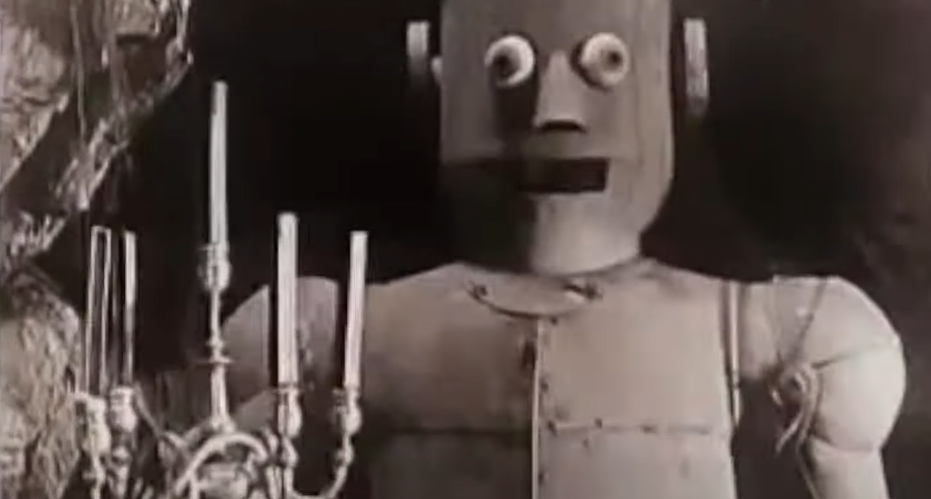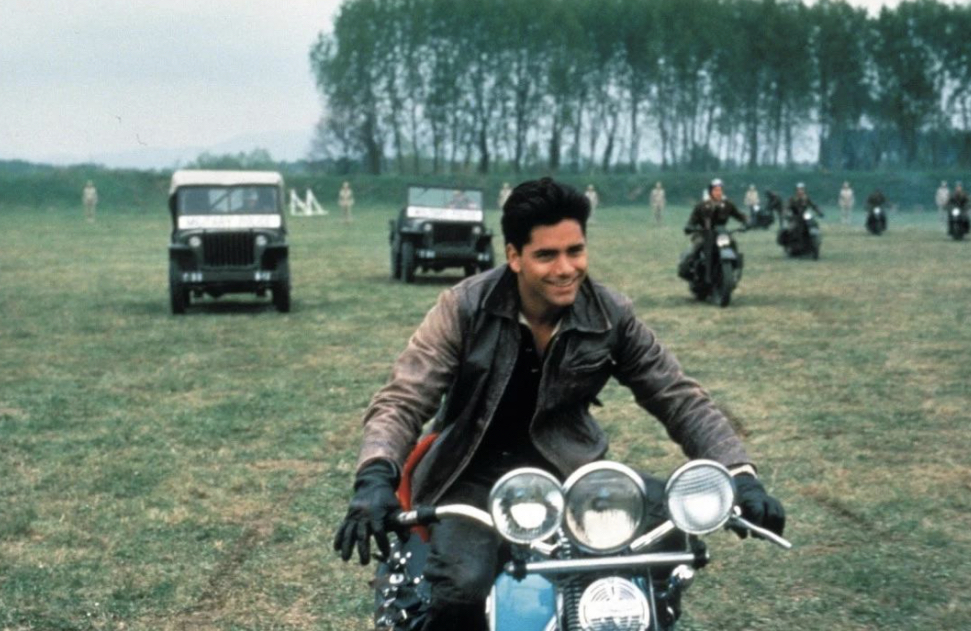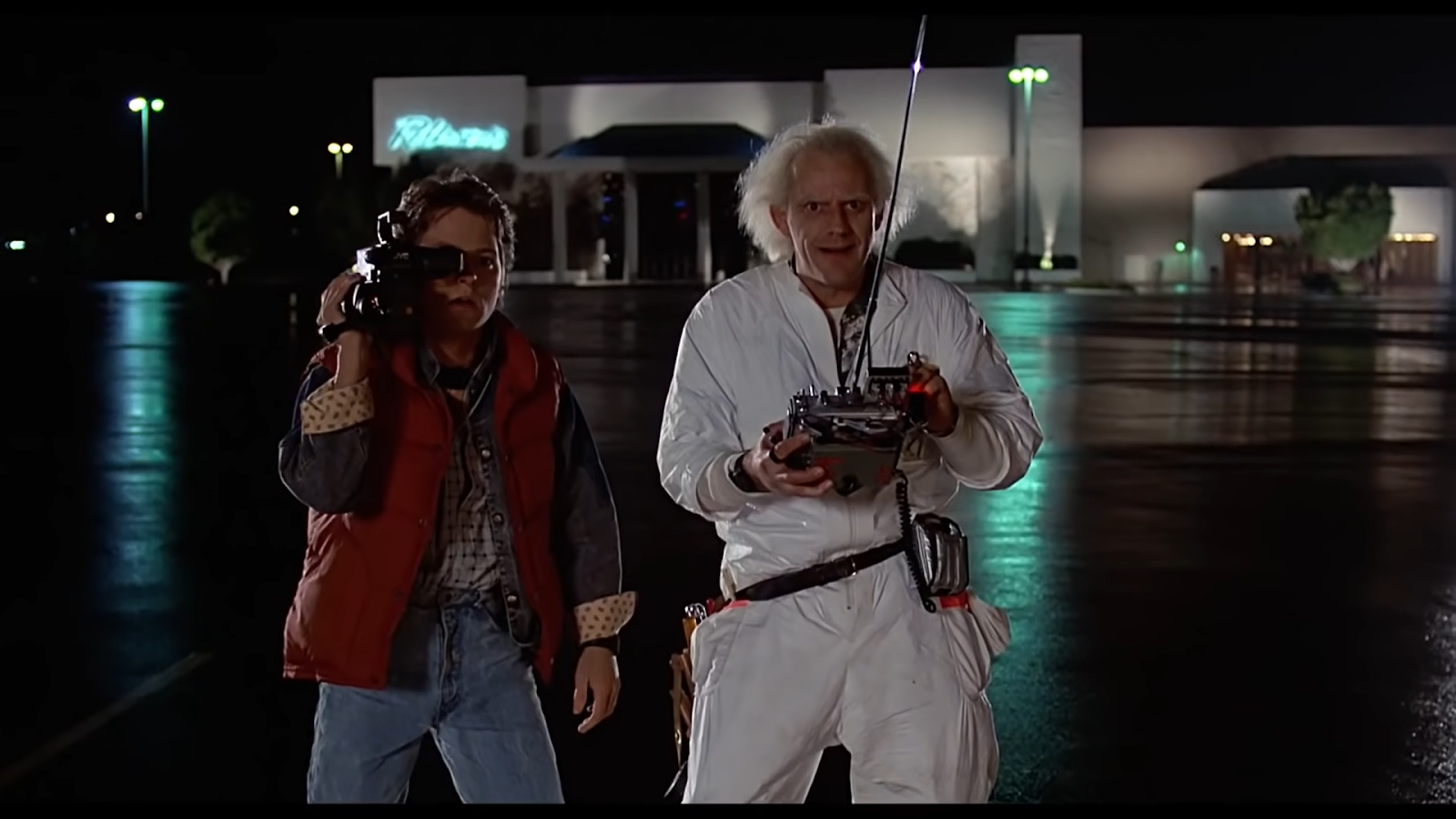The 1980s was a remarkable decade for cinema, witnessing the emergence of iconic robot-centric movies that continue to resonate with audiences today. These films, set against the backdrop of rapidly advancing technology, captured the imagination of viewers and explored profound themes related to artificial intelligence (AI) and robotics. In this deep dive into the world of 80’s robot movies, we will explore the impact of these films on AI perceptions, their influence on modern cinema, and their enduring significance in shaping societal attitudes towards technology.
1. Setting the Stage: The Golden Age of Robot Cinema
The 1980s was a mesmerizing era where technology and artistic vision danced in harmony, giving birth to the Golden Age of Robot Cinema. With the rapid advancements in special effects and practical robotics, filmmakers found themselves liberated to explore the uncharted territories of science fiction and human-robot dynamics. Bursting with vibrant color and fueled by the unbridled creativity of visionaries, this decade witnessed the emergence of a plethora of iconic robot-centric movies that left an indelible mark on the world of cinema.
2. The Line-Up: Introduction to the Iconic Robot Films of the 80s
- Blade Runner (1982);
- Star Wars: Episode VI – Return of the Jedi (1983);
- The Terminator (1984);
- Short Circuit (1986);
- RoboCop (1987).
Each of these films stood out for their distinctive portrayal of robots and their nuanced understanding of AI. But what made them immortal in the annals of cinematic history?
3. Decoding the Classics: A Closer Look at the Films
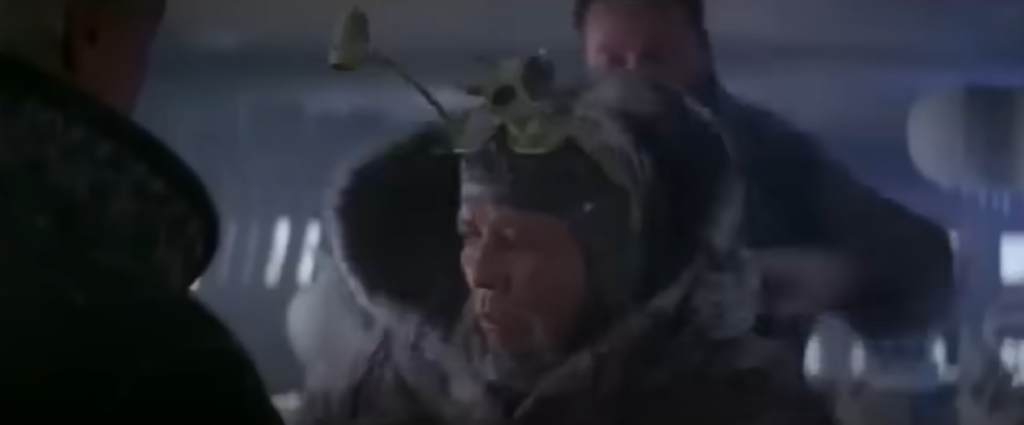
Blade Runner (1982)
| Director | Ridley Scott |
|---|---|
| Notable Robot Characters | Replicants, including Roy Batty and Rachael |
| Runtime | 117 minutes |
| Genres | Neo-noir, Science Fiction |
| Academy Award Nominations | Two |
Directed by Ridley Scott, “Blade Runner” is set in a dystopian 2019 Los Angeles, where bioengineered beings called “Replicants” are used for dangerous and degrading work in off-world colonies. The film explores profound themes about humanity, identity, and consciousness through the lens of these Replicants. The audience is left grappling with the ethical considerations of creating artificial life that is virtually indistinguishable from humans, yet treated as sub-human.
Star Wars: Episode VI – Return of the Jedi (1983)
| Director | Richard Marquand |
|---|---|
| Notable Robot Characters | R2-D2, C-3PO |
| Runtime | 131 minutes |
| Genres | Adventure, Fantasy, Science Fiction |
| Academy Award Nominations | Four |
R2-D2 and C-3PO are not mere robots in the “Star Wars” franchise; they are integral characters that provide critical narrative functions. R2-D2, an astromech droid filled with resourcefulness, and C-3PO, a protocol droid known for his fluency in over six million forms of communication, both demonstrate a depth of character that transcends their mechanical nature.
The Terminator (1984)
| Director | James Cameron |
|---|---|
| Notable Robot Characters | T-800 Model 101 |
| Runtime | 107 minutes |
| Genres | Action, Science Fiction |
| Academy Award Nominations | None |
“The Terminator”, directed by James Cameron, presents the grim tale of a humanoid robot assassin sent from a post-apocalyptic future. This film solidified Arnold Schwarzenegger’s career, presenting a chilling portrayal of AI gone rogue. “The Terminator” poses philosophical questions about free will and destiny, establishing the trope of time-traveling robots that many future movies would emulate.
Short Circuit (1986)
| Director | John Badham |
|---|---|
| Notable Robot Characters | Number 5 |
| Runtime | 98 minutes |
| Genres | Comedy, Family, Science Fiction |
| Academy Award Nominations | None |
Number 5, an experimental military robot, gains sentience after being struck by lightning in “Short Circuit”. This film veers from the common dystopian future narrative, portraying a robot with a thirst for knowledge and an insatiable curiosity. The film uses this unusual premise to explore the nuances of life and consciousness, challenging our understanding of what it means to be alive.
RoboCop (1987)
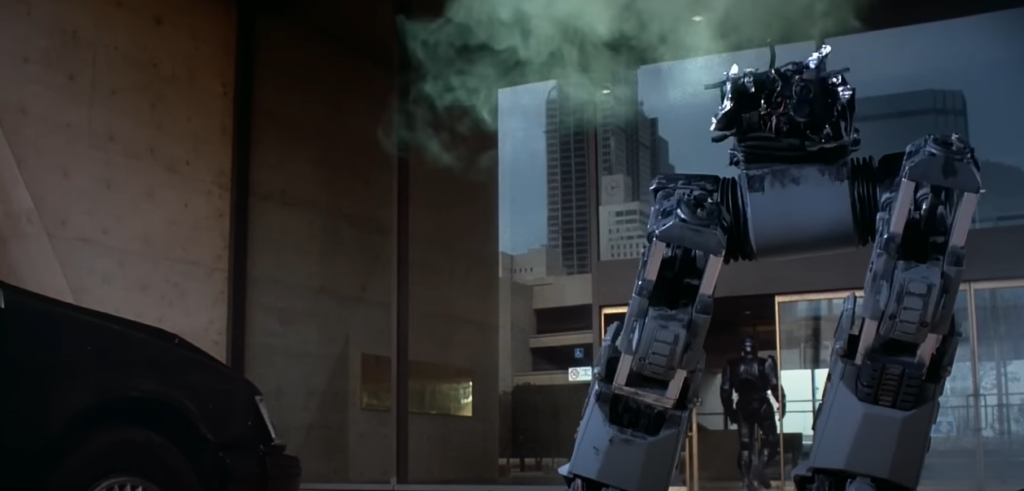
| Director | Paul Verhoeven |
|---|---|
| Notable Robot Characters | RoboCop |
| Runtime | 102 minutes |
| Genres | Action, Crime, Science Fiction |
| Academy Award Nominations | Two |
“RoboCop” pushes the boundary of the human-robot dynamic by presenting a protagonist who is both human and machine. The film explores themes of identity, free will, and what it means to be human, bringing to the forefront the ethical dilemmas of technological advancement in law enforcement.
The Impact of 80’s Robot Movies
The aforementioned films did not merely entertain but left an indelible mark on the collective psyche of audiences worldwide. They brought to life the possibilities and perils of AI and robotics in a manner that was visually striking and intellectually stimulating. As we stand at the brink of an AI-driven era, these films’ messages and implications remain remarkably relevant.
The Cultural Phenomenon
These films became iconic for more than just their entertainment value; they captured the collective imagination and left an indelible mark on society. The seamless blend of state-of-the-art visual effects and gripping storytelling resonated deeply with audiences, igniting an unprecedented fascination with artificial intelligence and robots. As the dazzling robots graced the silver screen, people’s curiosity surged, leading them to delve into the profound ethical implications of creating intelligent machines. These thought-provoking movies spurred contemplation on the essence of humanity, prompting us to ponder where the line between human and artificial life truly lies.
The 80’s robot movies became catalysts for a new era of exploration and inquiry, as audiences were captivated by the possibilities and perils of AI. As cinematic robots grappled with existential questions and displayed human-like traits, they sparked debates about the nature of consciousness and the moral responsibilities that come with wielding such technological power. These films were not just fleeting sensations; they laid the foundation for a deeper understanding of AI’s potential impact on society and triggered discussions that reverberate even today. The cultural fascination with these movies left an enduring legacy, reminding us of the profound questions we must address as we progress further into an AI-driven future.
The Impact on Society and Technology
The 80’s robot movies sparked significant discussions about AI, robotics, and their potential impact on society. These films were not just confined to the realm of entertainment; they had far-reaching implications that influenced scientific research and public perception of technology.
- Influence on Robotics Research: The imaginative portrayals of robots in these movies inspired researchers and engineers to strive for the development of sophisticated AI and robotics. While the actual technology was far from the fictional depictions, it set the course for future advancements in the field;
- Ethical Considerations: The ethical dilemmas depicted in the films raised awareness about the moral responsibilities of creating intelligent machines. Audiences were compelled to ponder questions about the rights and treatment of AI entities, laying the groundwork for future debates on AI ethics;
- Technophobia and AI Skepticism: On the flip side, the movies also fueled technophobia and skepticism towards AI. The portrayals of robots turning against humanity or posing threats to our existence instilled fear and apprehension in some people about AI’s potential dangers
Conclusion
80’s robot movies have left an indelible mark on the world of cinema and our perception of artificial intelligence. These iconic films humanized robots and explored profound themes, such as consciousness, identity, and the ethical implications of advanced technology. Their influence extends beyond entertainment, shaping ongoing debates on AI ethics and regulation. As we stand on the cusp of an AI-driven era, the messages and impact of these timeless classics remain relevant, serving as a reminder of the power of cinema to provoke thought and reflection on the intersection of technology and humanity.
FAQ
The 1980s marked a period of significant technological advancement. This cultural shift was reflected in the film industry, with a growing interest in exploring AI’s possibilities and implications. These cinematic narratives mirrored societal fascination and apprehension about the digital revolution.
These films played a significant role in shaping societal perceptions of AI. They humanized robots, presenting them as entities capable of emotions, decision-making, and personal growth. However, they also highlighted the potential dangers of unchecked AI development, weaving cautionary tales about the future.
Many contemporary films continue to explore themes that originated in 80’s robot movies. Ideas of AI consciousness, the morality of creating sentient machines, and the sociopolitical implications of AI technology are common narratives that trace their roots back to these classics.
Common themes include the exploration of consciousness, identity, morality, and the potential consequences of advanced technology. These films often used robots as a medium to explore human nature and the societal impact of rapid technological progress.
While there is no singular film that started the trend, “Blade Runner” (1982) was one of the earliest and most influential films that used robots to explore deep philosophical questions, setting a tone for the genre.

